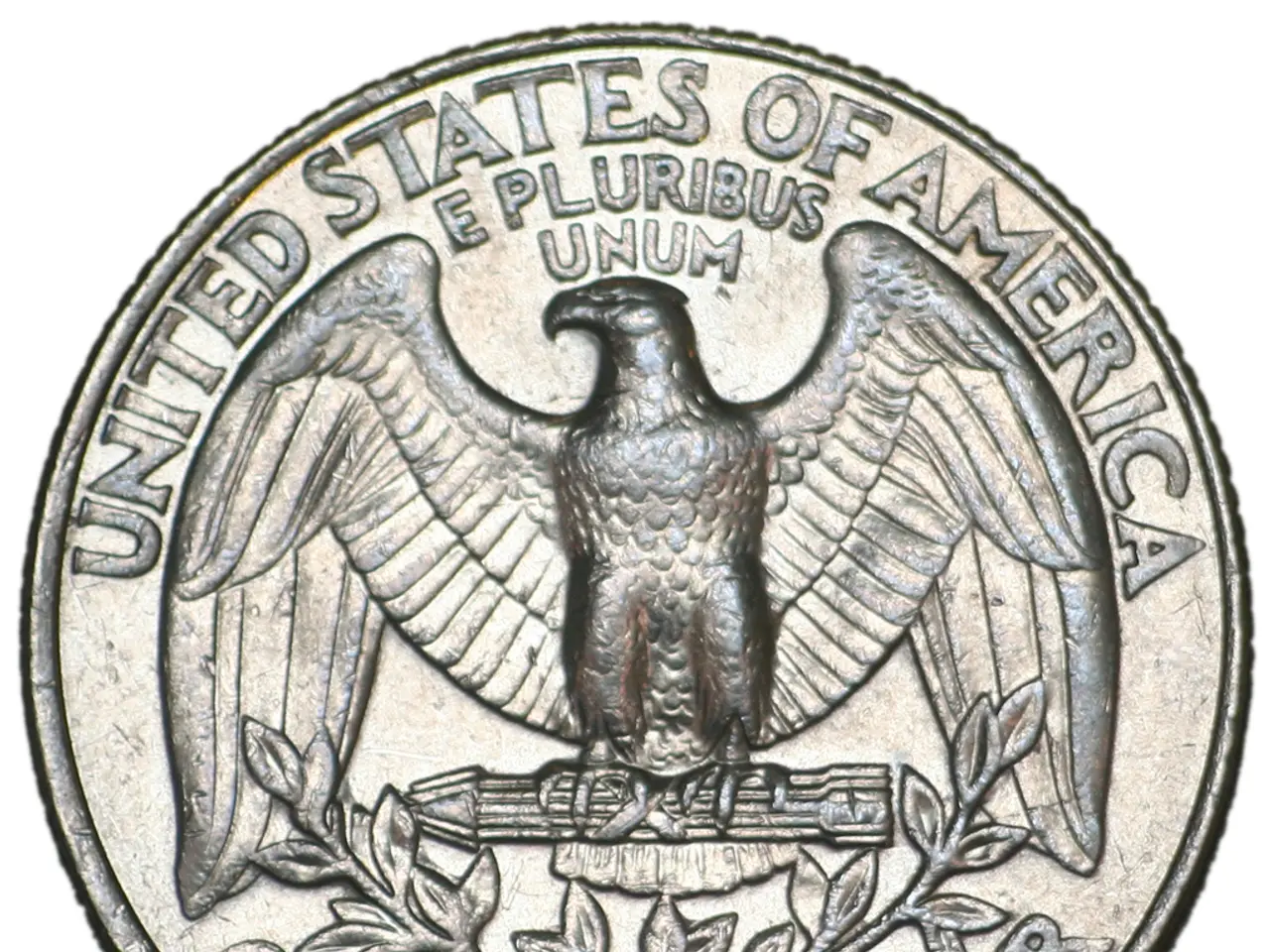CNBV, Mexico's financial regulator, assumes management of CIBanco and Intercam following allegations of money laundering from the United States
In a series of significant events in 2025, Canada, China, and Mexico responded to President Donald Trump's tariffs with retaliatory measures that had profound financial and governmental implications.
Canada, led by Prime Minister Justin Trudeau, imposed 25% tariffs on CA$30 billion (US$20.6 billion) worth of American products, including liquor, vegetables, clothing, shoes, and perfume. This move targeted mostly consumer goods and was aimed at "red states" in the U.S., directly affecting American industries and consumers. Trudeau warned that the tariffs would risk American jobs and could lead to shutdowns of U.S. auto assembly plants and manufacturing facilities.
China, facing the highest tariffs among the three, retaliated with an 84% tariff on U.S. imports. These tariff increases created a huge financial burden on both sides, with the U.S. tariffs amounting to an enormous $400 billion tax hike on American households and businesses before any substitution effects. The escalating tariff war between the two countries was described as severely disruptive, with global recession risks due to the scale and intensity of the measures.
Mexico, under President Claudia Sheinbaum, initially refrained from immediate retaliatory tariffs, opting to hold off until after discussions with the U.S. president. Despite the delays in retaliation compared to Canada and China, Mexico's government stance was firm on challenging the tariffs and coordinating responses that balanced economic concerns with diplomatic engagement.
Meanwhile, in Mexico, the Mexican National Banking and Securities Commission (CNBV) intervened temporarily in two financial institutions, CIBanco and Intercam Banco, on June 26, 2025. The intervention, authorised under Article 129 of Mexico's Credit Institutions Law, involved replacing the administrative and legal representatives of the banks. The case has sparked a debate about the need for evidence from U.S. authorities before taking further action.
The U.S. Department of the Treasury accused both banks of involvement in money laundering operations linked to Mexican drug cartels and the trafficking of opioids, including fentanyl. The sanctions include restrictions on fund transfers involving the named institutions and virtual currency accounts associated with them. The case has underscored the need for a coordinated international response to combat money laundering, drug trafficking, and the financing of criminal activities.
The financial implications of these events were enormous, contributing to increased trade tensions and threatening economic growth patterns in North America and globally. The responses by Canada, China, and Mexico to Trump's tariffs involved decisive retaliatory tariffs (especially Canada and China), alongside strong government warnings about economic damage and job risks. Mexico pursued a more cautious approach with diplomatic measures and delayed retaliation but joined the overall global trade conflict dynamic.
The intervention in CIBanco and Intercam Banco has brought attention to the need for transparency and accountability in financial institutions and underscored the necessity for robust regulations and oversight in the financial sector to prevent illicit activities. The case has also highlighted the significance of international scrutiny in the fight against money laundering and the trafficking of substances like opioids, including fentanyl. The case serves as an example of increasing international focus on financial institutions and the importance of cross-border cooperation in combating illicit financial flows.
[1] Source: The New York Times [2] Source: Reuters [3] Source: CBC News [4] Source: Financial Times
- The financial sector, including banking and insurance, faced increased scrutiny in 2025, as the Mexican National Banking and Securities Commission (CNBV) intervened in two financial institutions due to allegations of money laundering and opioid trafficking.
- The retaliatory tariffs imposed by Canada, China, and Mexico in response to President Donald Trump's tariffs had significant implications for various businesses and industries, ranging from auto assembly plants to consumer goods like liquor and clothing.
- The escalating trade tensions between the U.S. and its trading partners, as shown by these tariff disputes, raised concerns about the global economy, particularly the gross domestic product (GDP) of North American countries and beyond.
- The heated political discussions surrounding these financial and trade issues extended to the broader realm of general news, with debates about the effectiveness of tariffs, the need for international cooperation, and the importance of maintaining economic stability.




